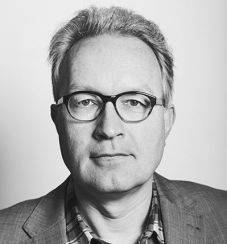That passion never left him. In 1983, while earning his PhD in solid-state physics, he needed to automate his data. So, he recalled recently, he bought two IBM PCs that in size, “resembled a dog house” and ran “the kind of floppy disks that were literally floppy.” He needed the two machines to communicate with each other, so he studied programming and implemented the Internet Protocol on both of them.

Today, Huizer is still tinkering: He is the Chief Technology Officer for SURFnet, a nonprofit that develops and maintains the national research and education network in the Netherlands. SURFnet is a member of GEANT (the pan-European research and education network) and the Trans-European Research and Networking Association (TERENA); and collaborates with other international partners such as CERnet in China and Internet 2 in the U.S. “While SURFnet is aimed at the Netherlands, it really knows no borders,” Huizer says. “Like Internet 2, it tries to be the most advanced network in the world. It’s geared to innovation and change, and we try to bring the latest tools to our users.” Huizer first began working for SURFnet in 1988, and he’s grateful for the opportunities it’s given him, such as the chance to travel and meet people.
“SURFnet made it possible for me to attend Internet Engineering Task Force (IETF) meetings worldwide,” he points out. Huizer himself organized the first IETF meeting ever held outside the U.S., in 1993 in Amsterdam.
It was just a year later, in 1994, that he wrote the first Request for Comments to document the IETF standards process and also the procedures of the IETF Working Groups – which he knew well, since he chaired several of them. That famous “RFC 1603” is one of the reasons that earned him a place in the Internet Hall of Fame Class of 2014.
From 1991 till 1995 he was Area Director for the Applications area of the IETF and as such a member of the Internet Engineering Steering Group (IESG). From 1995-2002 he was a member of the Internet Architecture Board (IAB). From 1999 till 2002, Huizer chaired the IAB’s Internet Research Task Force. He then went on to represent the IETF on the Internet Society’s Board of Trustees from 2003 to 2006. You’d think that when his term on the ISOC board expired, he’d take a break, but his passion for innovating got the best of him and he joined the Public Interest Registry, which manages the “.org” top-level domain and contributes to the ISOC revenue stream. He remains on the PIR board to this day.
Currently, Huizer is most excited about two innovations SURFnet created.
One, called eduroam, allows students and other researchers to go online without having to use separate networks and passwords in any of the 90 nations that have so far adopted it. Some 20 million people a day are now using eduroam worldwide.
The other, more recent, SURFconext, offers a secure infrastructure for “cloud”-style collaboration. It gives teachers and researchers access to a range of services through their own institutional account, so they need to make only one connection to access those services. It’s starting to be just as popular as eduroam, and Huizer thinks SURFconext eventually will be widely used by businesses and governments, as well.
In looking back on his career, Huizer’s dry sense of humor shines through. “In 1992,” he says, “while I was in the U.S. working with [the late Internet Hall of Famer] Jon Postel on domain names, he told me that Procter & Gamble wanted to register a domain that was something like ‘babysoap.com.’ I understood the marketing implications, as I was responsible for standardizing URL’s, so when I returned to the Netherlands I told my colleagues, ‘We should register SURF.net.’ What I should have said was, ‘We should register SEX.com!’ If only I’d thought of that, I’d be a rich man today.”
Huizer may not be rich in cash – he’s worked for nonprofits all his life – but the tireless Hall of Famer is rich in friends, including include many who, like him, want the Internet to retain its democratic spirit.
He says, “I’ve spent my whole life creating an open, accessible and trustworthy Internet and I still believe it delivers incomparable opportunities to people worldwide. I’ll continue doing that till they carry me away.”